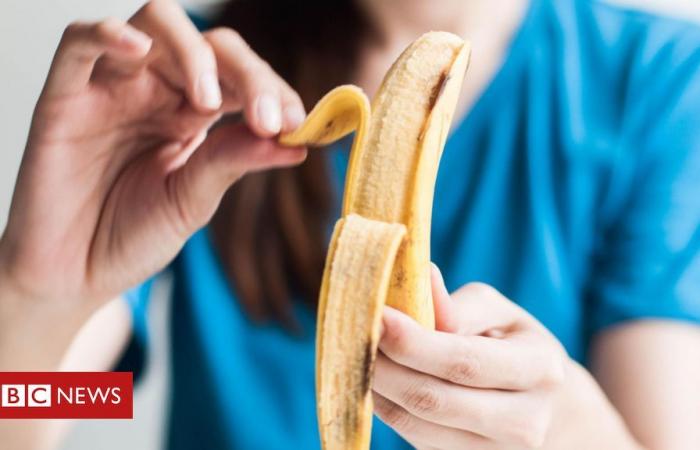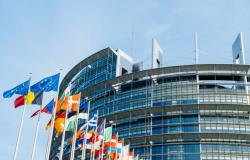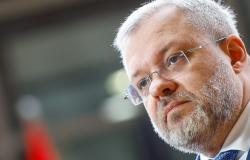Not only because food has the power to make us gain or lose weight, sleep better and change our mood, but also because your meals can dictate how well you perform physical activities, including how much energy you will have to train and how your body feels. will recover later.
For those who practice a sport, pre-workout, a meal eaten right before starting exercise, can be seen as an important step towards achieving good results, such as weight loss or improved performance.
But, according to experts interviewed by BBC News Brasil, this pre-workout serves more to ensure satiety and maintain energy levels.
“What you consume before training doesn’t work ‘great miracles’. This meal or snack is actually just to keep you well enough to exercise”, explains Julia Engel, sports nutritionist and host of the podcast In Search of Performance.
According to the expert, what really matters to have a good performance – whether lifting weights, running or other types of activity – is what you ate in your last “post-workout”, the meal eaten after training the previous day.
The nutritionist states that “pre-workout begins after the previous post-workout”, because it is at this moment that the body replenishes glycogen, the glucose reserve (the most basic carbohydrate that provides us with energy for activities).
Fuel for training
Glucose and glycogen are essential carbohydrates for those who need energy to exercise, but they play different roles in the body.
Glycogen is stored in the muscles (and in the liver, but this portion will not be used in training) waiting for the time when the body moves and needs extra gas.
By “saving” as much as possible, the body has enough stock to use in training without depending on the most recent meal.
“For this storage to occur, a meal specifically designed for post-workout must be consumed within four hours of exercise.”
Engel cites quickly absorbed carbohydrates as a good consumption option, preferably a combination of glucose and fructose.
“This mixture allows for faster absorption, using different transporters. Some examples are: corn cereal (rich in fructose) and potatoes, which contain a lot of starch (glucose) and a portion of raisins (which contain glucose and fructose )”, says Engel.
The choice and exact quantity of food, points out nutritionist Jamile Tahim, master from UECE (State University of Ceará), needs to take into account aspects such as age, basal metabolic rate (amount of calories that the body needs to perform its basic functions while it is in rest), weight, modality, time and intensity of the exercises.
In the hours following training, protein consumption – whether through food or supplements – is also crucial to promote muscle synthesis, accelerating muscle recovery and growth.
The consumption of fiber, such as whole grains, vegetables and green leaves, explains Julia Engel, can hinder the rapid absorption of carbohydrates, and therefore, it should be done at least two hours after consuming glucose and fructose.
But having a good physiological reserve for physical exercise does not mean that you should not eat shortly before training or that the meal eaten a few hours before can consist of any food.
What to eat right before training
The “immediate” pre-workout, which should be consumed between 3 hours and 15 minutes before training, depending on the amount of food and individual needs, aims to avoid the feeling of hunger and maintain blood glucose, the glucose level in the body. blood.
Glucose consumed through food is carried by the blood to muscle cells. There, it turns into ATP, which is the body’s main source of energy.
The ideal, according to experts, is that guidance should always be individualized, taking into account the characteristics of each person, their tastes and level of physical activity.
But, in general, nutritionist Jamile Tahim recommends that the last meal before exercise contains low amounts of fiber and fat, an adequate amount of protein and a higher concentration of carbohydrates.
This is because the consumption of fats, fibers and proteins increases the emptying time of the gastric system, which consequently delays the process of eliminating feces, and this can harm exercise performance, explains Tahim.
“The consumption of carbohydrate sources should be prioritized, because the sources of this macronutrient undergo a faster digestion process and are also the main source of energy for our body.”
The nutritionists consulted by the report explain that, if training takes place early in the morning, it is necessary to think of something that keeps the person energized.
In this case, it is advisable to choose fast-digesting foods to maintain blood glucose levels.
On the other hand, if training takes place in the afternoon or evening and the person has already eaten different nutritious foods throughout the day, the approach may be different, and will depend on each case.
Nutritionist Jamile Tahim describes some examples:
- Natural yogurt with fruit and a drizzle of honey
- Fruit salad with granola
- Orange juice with beetroot and ginger
- Whole grape juice
- Dates
- Banana
- Sandwich with low-fat cheese, egg, chicken or tuna
- Roasted banana with slice of low-fat cheese and cinnamon to taste
- Fruit smoothie
- Açaí
- Milk cream
- Omelet with oatmeal and chicken or beef
- Fruit smoothie
- Sweet potato or potato with chicken
- Tapioca with egg
For intense long-term training, such as running or cycling that lasts over an hour, Engel points out that it is necessary to ingest carbohydrates during the activity, which is generally done through gels, but also through the consumption of food.
“In sessions lasting up to two hours, ingesting 30 to 60g of carbohydrates per hour may be sufficient”, says the nutritionist.
In training sessions longer than three hours, carried out by high-performance athletes, it may be necessary to increase to approximately 90g of carbohydrates per hour, according to Engel.
“It is essential to train the body to absorb these quantities, as adaptation is necessary to ensure effective absorption.”
Dried fruits, such as raisins, are food options rich in natural sugars (fructose, glucose and sucrose) and easy to store.
A person can exercise without eating first, but only if they are not hungry, experts explain.
“A good way to illustrate is the habit of exercising while fasting: if the person wakes up without hunger, having made a good supply the day before, they can exercise,” says Engel.
“But if you’re hungry, it’s not ideal because it puts unnecessary stress on the body.”
The important thing is to pay attention to the signals your body is giving you.
Avoiding eating before training or consuming too small portions, which can make someone feel hungry during exercise, can harm not only sports performance, but also health.
“Some people start physical activity hungry, mistakenly believing that the feeling will disappear during exercise,” says the nutritionist.
Exercising while hungry can make a person fatigue more quickly due to low glycogen availability.
The symptoms themselves can also harm training: without enough “fuel”, dizziness, weakness and gastrointestinal discomforts such as motion sickness and nausea can appear.
Additionally, a lack of fuel can lead to loss of muscle mass, as the body may begin to look to muscle tissue for energy.






